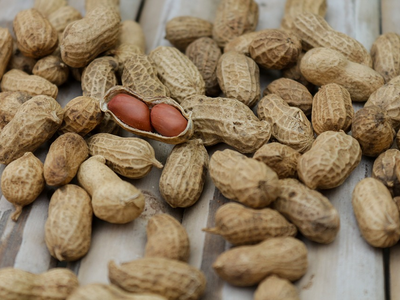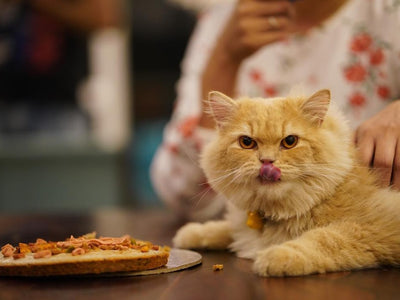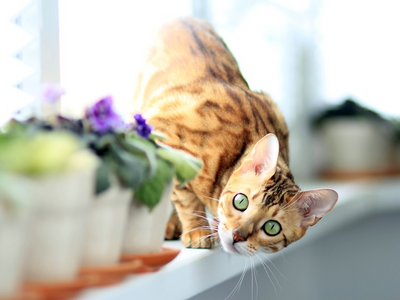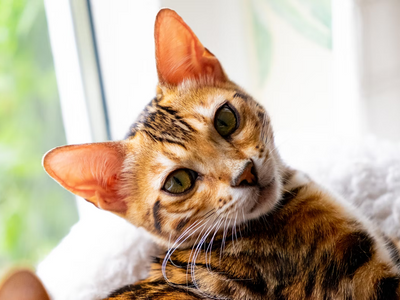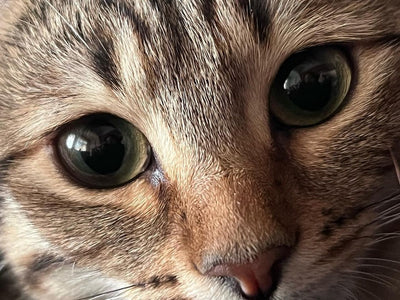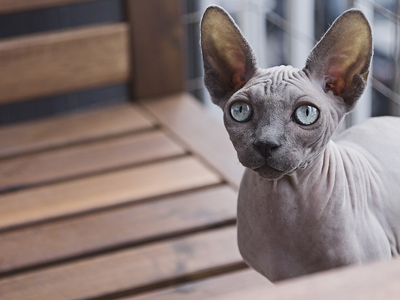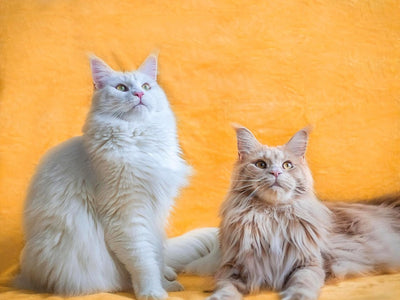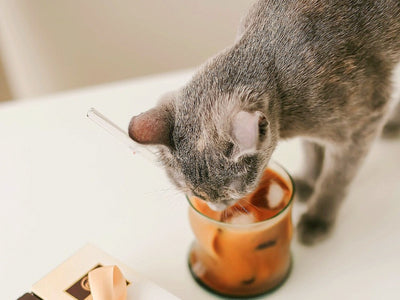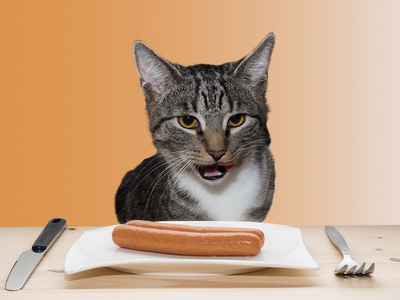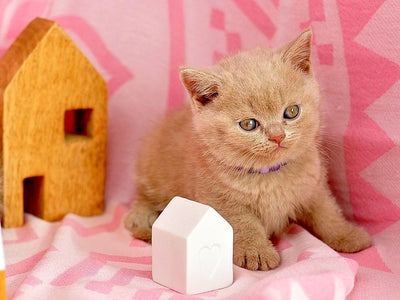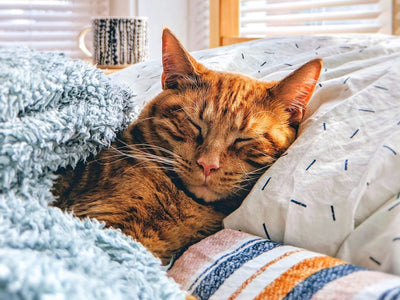12.07.2022
British Shorthair health problems—a compact guide
British Shorthairs are generally a healthy breed, but they are not immune to common ailments that most felines suffer from. Like most purebreds, these kitties are more susceptible to several genetic and acquired illnesses.
What British Shorthair health problems should you be on the lookout for? Untamed explores inherited and lifestyle-related disorders most likely to affect your cuddly plush-like cat and discovers the best ways to prevent them.
British Shorthair inherited diseases
The most common hereditary diseases that affect British Shorthair cats include:
- Heart disease
- Feline arterial thromboembolism (FATE)
- Haemophilia
- Feline lower urinary tract disease (FLUTD)
- Polycystic kidney disease (PKD)
- Cataract
While you can't prevent inherited illnesses, you can successfully manage them with an adequate diet and a healthier lifestyle.
Heart disease
The two most common types of heart disease in British Shorthair cats are:
- Hypertrophic cardiomyopathy (HCM)—Characterised by the thickening of the heart muscle, this condition is often a consequence of an overactive thyroid gland. It is also more common in older and overweight felines
- Dilated cardiomyopathy (DCM)—This condition is caused by the taurine deficiency, showing how critical a high-quality and high-protein diet is for feline health
Discovering these problems early and finding the right treatment is crucial, but it may be difficult to spot the symptoms. Some of the first signs cat parents may notice include:
- Rapid breathing
- Poor appetite
- Lethargy
Feline arterial thromboembolism

If you notice your kitty can’t walk properly, take them to the vet instantly.
Source: 9685995
Cats who suffer from heart disease can develop blood clots in their arteries. This condition is called feline aortic thromboembolism (FATE). In such cases, the blood clot often blocks blood flow to the hind legs, which leads to partial or total paralysis and makes the cat's legs cold and painful.
Quick reaction from veterinary experts is crucial in such situations, and cats who survive often regain full mobility. If your British Shorthair is diagnosed with cardiomyopathy, your vet will probably prescribe a medication to prevent blood clot formation.
Haemophilia
British Shorthairs are more prone to haemophilia than other breeds. This condition refers to a blood coagulation disorder in which wounds bleed continuously and profusely. There are several types of haemophilia, ranging from mild to severe, but even mild cases can be life-threatening.
Cats who suffer from this disorder seem perfectly normal until there is an injury or they have to undergo surgery. Since British Shorthair cats are in an at-risk group, it is wise to perform diagnostic testing before any surgical intervention, even in the case of something as benign as tooth extraction.
Feline lower urinary tract disease (FLUTD)
FLUTD is an umbrella term for several different illnesses affecting the urinary tract, such as:
- Urinary tract infection
- Urolithiasis
- Idiopathic cystitis
- Urethral obstruction
These diseases have similar symptoms, the most common of which are:
- Abnormal urination—the cat tends to urinate on cold surfaces and outside the litterbox
- Blood in the urine
- Straining to urinate but no or little urine production
- Crying while urinating
- Frequent licking in the genital region
It's advisable to regularly take your British Shorthair for urinalysis because symptoms may not be easily noticeable. Besides urinary infections, this analysis can help you catch other diseases, like diabetes.
If your feline friend suffers from FLUTD, you can manage it successfully with a diet change and medication.
Polycystic kidney disease (PKD)
PKD is caused by a defective gene, which was first recognised in Persian cats but also found in other breeds, including British Shorthairs. Kittens born with PKD have tiny cysts inside their kidneys. The cysts grow over time, destroying the affected organs.
The symptoms usually appear around the age of seven and often include:
- Weight loss
- Vomiting
- Nausea
- Increased thirst
- Loss of appetite
- High blood pressure
While there is no cure for PKD, it is possible to slow down the progression of the disease with a special diet, but it's necessary to diagnose the condition early. Regular urine/blood testing and abdominal ultrasound can indicate the presence of this disease, which is why it’s crucial to schedule regular check-ups for your kitty.
Cataract

Even if your British Shorthair develops cataracts, they can live a normal life.
Source: 3093594
British Shorthair cats are prone to a few eye problems. Cataracts are the most usual, and they are the most common cause of blindness in older felines. The first symptom is a more opaque lens that prevents the light from reaching the retina.
Surgery to remove cataracts is the best way to restore the British Shorthair's vision, but cats typically get used to the gradual loss of sight and have a normal life.
Besides genetic factors, common causes of cataract development are:
- Injury
- Inflammation
- Infection
- Diabetes
- High blood pressure
- Nutritional imbalance
- Inability to metabolise some proteins
British Shorthair lifestyle-related diseases
The most common lifestyle-related illnesses that affect British Shorthairs are:
- Dental issues
- Skin issues
- Weight problems
Dental issues

Dental issues can lead to serious health problems if left untreated.
Source: ggirl144
Common dental problems affecting British Shorthair cats include:
- Gingivitis
- Periodontitis
- Tooth resorption
Dental issues cause pain and discomfort, making felines unwilling to eat, which can lead to numerous health problems, such as:
- Diabetes
- Liver disease
- Lung disease
- Heart disease
- Kidney disease
Avoiding highly processed food high in grains and sugar can prevent problems with teeth. Feeding your British Shorthair dry food from time to time can also help remove build-up from the teeth, preventing gum issues.
Skin and coat problems
Your British Shorthair can experience skin problems due to several factors. Check out the table below to see the most common causes.
|
Cause |
Description |
|
Parasites |
Fleas and ticks can cause allergic reactions. You will know your kitty’s battling a parasitic infestation if you see:
|
|
Stress |
Stress can cause your British Shorthair to overgroom and develop psychogenic alopecia. The most common causes are:
|
|
An allergic reaction to a food ingredient is a common cause of skin problems and increased shedding |
Weight problems
British Shorthairs like to sleep a lot and tend to be pretty lazy (the fact that they are an indoorsy type doesn’t help). As they get older, they become less active, which leads to weight gain and other related issues, such as joint problems, hypertension, osteoarthritis, heart disease, kidney disease, and similar.
The best way to prevent your kitty from gaining excess weight is to ensure they get regular exercise, feed them low-calorie food, and control their portions.
The best diet for your British Shorthair
A well-balanced diet is your best bet at controlling inherited diseases and keeping your feline happy. Whatever type of cat food you choose—wet, dry, semi-moist, raw, or homemade—it must be:
- Rich in animal protein
- Low in carbs
- Hydrating
Given that these felines are also prone to obesity, it is crucial to avoid certain ingredients with high-calorie values, such as grains and sugar. The first ingredient on the list should be a source of animal protein, such as:
It is also essential to mainly feed your British Shorthair wet food, as it contains over 75% of moisture and is more hydrating than dry food. Kibble only has about 10%, and since felines are not big drinkers, feeding them dry food alone can lead to dehydration, followed by kidney and urinary tract diseases.
Besides animal protein, cats also need moderate amounts of animal fat (up to 20%). It will help keep their coat healthy and ensure good transportation and utilisation of nutrients. Fat is also a great natural taste enhancer, so cats can enjoy food with a bit of bacon or ham for additional flavour.
Keep your British Shorthair healthy and fit with Untamed

High-protein, low-carb, and hydrating food is the best option for your British Shorthair.
Image (c) Untamed
Untamed knows that the best feline diet is the one that resembles their natural eating habits, so we make sure that every meal is:
- Rich in protein—Every Untamed tin has twice as much protein as most commercially sold products. All our dishes are sugar-free, grain-free, and low-carb
- Made with high-quality whole meat and fish—We only use human-grade ingredients
- Vet-formulated—Untamed meals are designed by vets, ensuring that your cat's biological needs are met, whether they are a:
- Kitten who needs well-balanced meals to grow healthy and strong
- Adult who needs their energy levelled
- Neutered male who struggles with weight management
- Pregnant queen who needs extra energy
- Older cat who has difficulty keeping their muscle tone
- Allergen-free—We don't use any known allergens, so even kitties with sensitive tummies can enjoy our dishes
- Fussy eater-approved—Our meals contain a hint of animal fat that felines find irresistible, and thanks to the special preparation process, the natural texture and aroma of meat remain locked in, so even picky British Shorthairs who typically frown at wet food won't be able to resist them
Untamed is good for your cat and the environment. We make sure that all our ingredients are ethically sourced, so we cooperate with sustainable and cruelty-free suppliers. Our packaging is 100% recyclable, and we keep our operations carbon neutral.
Try Untamed now and see your British Shorthair thrive!
The amazing results to expect from Untamed
Once you switch your British Shorthair to Untamed food, you will see the effects of our natural feline diet within a few days. According to the feedback we received from many satisfied cat parents, you can expect the following results:
|
Timefame |
The effects |
|
After a week |
|
|
After two months |
|
|
After four months |
|
|
How to order Untamed delicacies for your kitty
Ordering healthy and well-balanced meals for your British Shorthair couldn't be simpler. All you need to do is:
- Complete our Try Now questionnaire
- Choose the products you like
- Complete your order
The first shipment of the finest delicacies will arrive at your doorstep in a day. Once your feline friend goes through the entire starter menu and picks their favourites, you can create a tailor-made meal plan, and we can keep sending you monthly supplies of Untamed tins.

![Associated image for What human food can Sphynx cats eat? [Comprehensive list]](http://untamed.com/cdn/shop/articles/what_human_food_can_sphynx_cats_eat_Featured_400x300_crop_center.jpg?v=1648705074)
